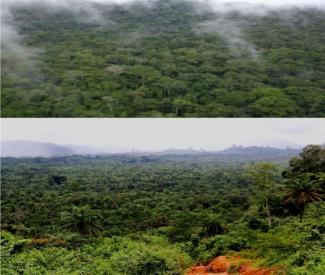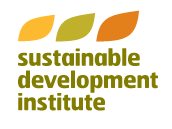
In the midst of deep controversies surrounding the Blue Carbon deal, communities that would be affected by the deal between Liberia and the United Arab Emirates-based Blue Carbon are demanding their right to consent.
The Liberian Government has been negotiating with Blue Carbon to harvest and trade carbon on more than a million hectares of forestlands as part of a US$50 billion deal that also involves Tanzania, Zambia, Zimbabwe, and possibly Angola. The potential 30-year deal would affect towns and villages in Margibi, Sinoe, Lofa, Gbarpolu, and RiverCess Counties.
Speaking to The Daylight, the local people who own the forest said they have not given their consent as required by Liberia’s land and forestry laws. More than a dozen people interviewed who are potentially from affected communities in RiverCess and Margibi expressed dissatisfaction.
“We think we should be contacted and we should be a part because carbon has something to do with the community people,” said Matthew Walley, a local forestry leader in the Central RiverCess District, RiverCess County. The proposed Blue Carbon agreement targets a little over 57,000 hectares of forest in the region.
“We want the government to halt the arrangement and they should come to us and sit with the community,” Walley added.
The Liberian government has been negotiating the deal after signing a memorandum of understanding with Blue Carbon in March. Liberia sees the agreement as an opportunity to meet its climate objectives, including to slice its deforestation rate by 2030. Blue Carbon, owned by a member of the UAE Royal Family, aims to use the deal to reduce its carbon emissions footprints globally.
But national and international campaigners have criticized the deal for—among other things—disregarding the rights of rural communities.
A draft of the controversial agreement, seen by the online media platform shows that the government intends to get communities’ consent within three months of signing the agreement with the Liberian Government. However, that should have happened prior to the government’s initial MoU with Blue Carbon, based on the principle of consent.
“The government feels that they have power over [us who] live within the communities. So, they do things on their own they don’t inform us,” added Marthaline Smith, a member of the leadership. “If they want to really give our forest out to company or NGO, we have to sit down and discuss it…,” Smith added. “The government has to talk to me first,” said Harry Lawgar, an elder in the Beyan Poye community Gibi District, Margibi County.
The deal targets the Gibi Proposed Protected Area (PPA), covering over 88,000 hectares of forest. Like in River Cess, Lawgar and other people in Gibi raised qualms for being overlooked.
“Everybody should be inclusive,” said Jerome Poye a townsman also in the Beyan Poye community.
“The community has to get the understanding of it,” Lawgar added. Locals said they needed to know exactly what was in the agreement for them.
The current draft agreement apportions 70 percent of carbon royalties for Blue Carbon and 30 percent for the Liberian government in the first 10 years and 50 percent apiece thereafter.
It also sets aside 50 percent of the carbon royalties, 40 percent interest from the government’s shares, and a five percent interest payment from the government’s stakes in the project for the communities.
But it does not say how the carbon credit will be valued and traded, and how the carbon saving will be generated. It also fails to say what certification standards it would use. Experts say these are the major components of the carbon market, which is still emerging globally.
The international community criticized the “vague” proposed deal when they discussed it on August 3, according to a document seen by The DayLight.
Villagers in Central River Cess and Gibi, two of Liberia’s remotest regions, demanded to know about their benefits. They said they needed everything from clinics, roads, schools, and livelihood programs.
“We want to know the calculation. If I get 57,000 hectares preserved as carbon area, what will be the calculation?” said Walley of River Cess. “Through what kind of benefit-sharing mechanism?”
“How the calculation will be done we don’t know because they will not just come and give the community US$50 or US$100, saying that it is our benefit,” Walley added. “We will not accept it.”
It can be recalled representatives of forested Communities from Sinoe, Rivercess, Grand Bassa, River Gee, Grand Gedeh, Bong, Lofa, Grand Cape Mount, Margibi and Bomi Counties called on the Liberian Government to halt all ongoing negotiations with Blue Carbon, a company based in the United Arab Emirates (UAE).
In a statement issued Thursday, August 18, 2023, the concerned customary community’s representatives said “We wish to inform the Liberian Government that this development is very disturbing to communities given that Liberia’s communities have been granted customary rights over the country’s land and forest which grants us Free Prior Informed Consent (FPIC) before granting any concession, especially of such magnitude and alarming size on communities’ customary land. The proposed Conservation Agreement between Liberia and Blue Carbon will definitely have severe implications for access and livelihoods to Liberia’s customary communities.”
“We wish to remind the Liberian Government that Article 33(3) of the Land Rights Act (LRA) requires FPIC of the Community for ‘any interference with or use of the surface of Customary Land’. In compliance with this provision, communities hereby demand the Government of Liberia to immediately Halt ongoing negotiations with Blue Carbon and first seek affected communities’ FPIC before proceeding further,” the statement further added.
This statement was informed by the outcome of a two-day policy dialogue focused on identifying lessons learned and deepening efforts to strengthen community land rights which took place at the Corina Hotel, Sinkor, Monrovia, on August 16 & 17, 2023 organized by the Civil Society Organizations Working Group (CSOWG) on Land Reforms.
